Jabs for kids and boosters for adults: All you need to know
One of the key issues in the debate about vaccinating kids is whether the benefits of protection outweigh the risks of side effects. Here’s everything you need to know.
Coronavirus
Don't miss out on the headlines from Coronavirus. Followed categories will be added to My News.
Everything you need to know about vaccinations for kids aged five to 11, booster shots and looming retail restrictions on those who haven’t received their jab.
JABS FOR KIDS
Should children aged between five and 11 years old be vaccinated against Covid?
One of the key issues in the debate about vaccinating kids is whether the benefits of protection outweigh the risks of side effects.
Co-chair of Australia’s expert immunisation panel, Prof Allen Cheng, says the benefits may be more clear for kids who are immunocompromised or have other health issues.
However, he says the risk equation is different in kids that are healthy.
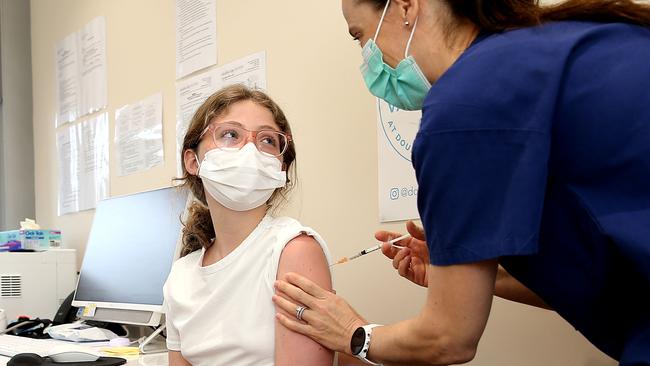
This is because the risk of kids becoming seriously ill from the Delta variant is extremely low. Australian Medical Association vice president Dr Chris Moy said administering the correct vaccine dose for children was safe, but vaccinating adults against Covid was more important because the risk of severe illness.
“The vaccines look safe at a third of the dose, the main argument to vaccinate children is to keep Covid out of their schools and not to disrupt their learning,” he said.
When are children likely to receive the vaccine?
Australian regulators are currently assessing Pfizer’s application and are awaiting further information from the drug company before they can decide if the shot will be approved.
The Herald Sun revealed this week that children aged five to 11 face waiting until next year to get the jab.
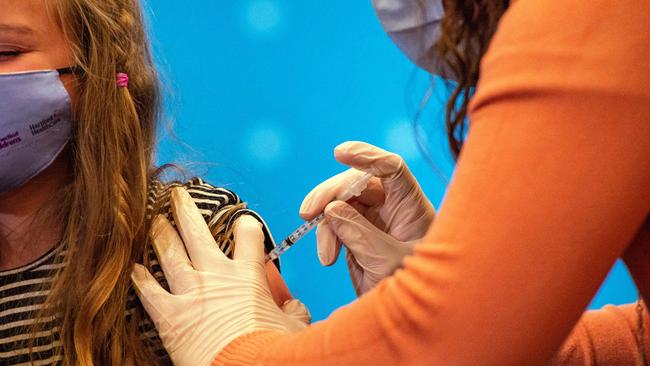
What vaccination dose would they receive?
Young children would receive one third of an adult dose of the Pfizer vaccine, if approved by the Therapeutic Goods Administration and ATAGI.
Are children overseas being vaccinated?
The US last week began vaccinating 5-11 year olds with a third of the adult Pfizer dose.
In Chile, children aged six years and up can receive the Sinovac vaccine.
Children aged as young as three and up to 17 years old in China have also been approved to receive the Sinovac vaccine.
BOOSTER SHOTS
When do I need a booster vaccine dose?
Victorians who received their second Covid vaccine more than six months ago is now eligible for a booster shot.
What vaccine brand will I receive?
The Pfizer vaccine will be used for booster shots, regardless of whether the person received two doses of the Pfizer, AstraZeneca or Moderna doses initially.
What doses are currently available?
Pfizer vaccines have already been approved for the booster shot rollout, with more than 173,000 doses already having been administered. Moderna vaccines are expected to be approved for the rollout in the coming weeks.
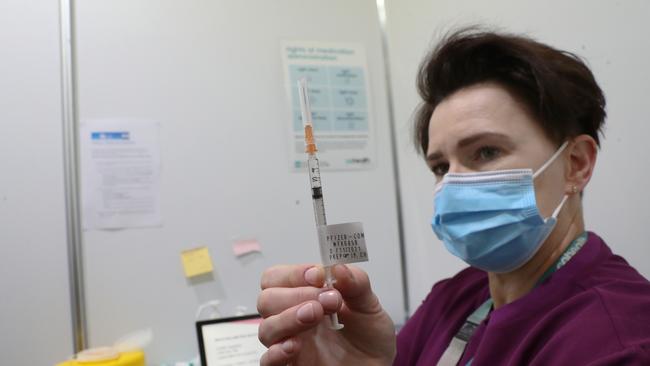
Where can I receive my booster shot?
Pharmacies and GP clinics have been given the green light to administer booster shots. The boosters will also be distributed at state-run vaccination hubs.
Will not receiving a booster dose restrict my freedoms?
Australians are classified as fully vaccinated after receiving the first two doses of their Covid vaccine. People who haven’t received a booster won’t be treated as unvaccinated or locked out of hospitality venues, retail stores and events.
VACCINATED ECONOMY
Are unvaccinated people allowed to go shopping?
Retail is currently open to all Victorians regardless of their vaccine status but that is set to change.
When the state hits the 90 per cent vaccination target – about November 24 – unvaccinated Victorians will be banned from entering non-essential retail.
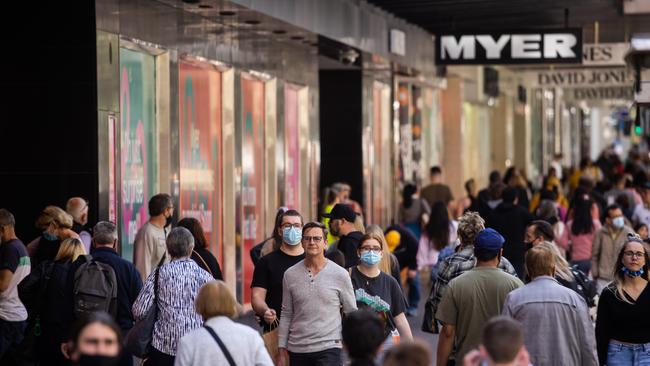
What is the government’s reason for allowing unvaccinated Victorians to shop now but not when jab rates are higher?
The government has tried to explain the bizarre rule by claiming there was a transition period because there had previously been no plans to require vaccination for non-essential retail.
The Premier has said previously: “We have changed that. The fair thing is to give people some time.”
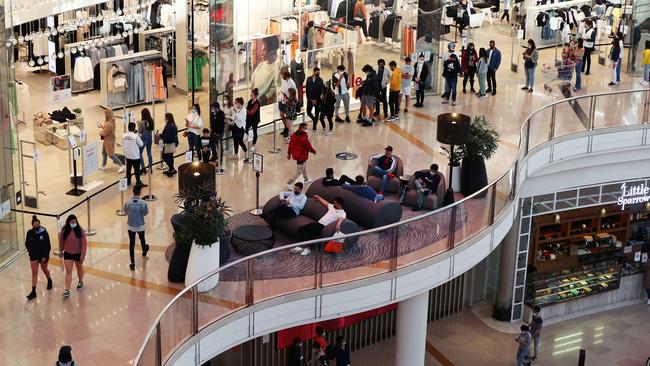
NSW has already begun stripping back their vaccinated economy. How long will Victoria’s vaccine mandates remain in place?
When announcing Victoria’s road map out of lockdown, Premier Daniel Andrews warned unvaccinated Victorians that the double dosed vaccinated economy was “here to stay”.
He said: “The vaccinated economy is here to stay, it will not be folded up. We will add to the vaccinated economy by asking and mandating that all non essential retail (workers) will have to be vaccinated as well.”
Unvaccinated people in NSW will have the same freedoms as fully vaccinated people by December 1, when 90% of adults are expected to be vaccinated.




